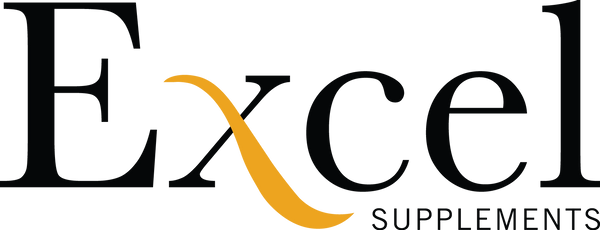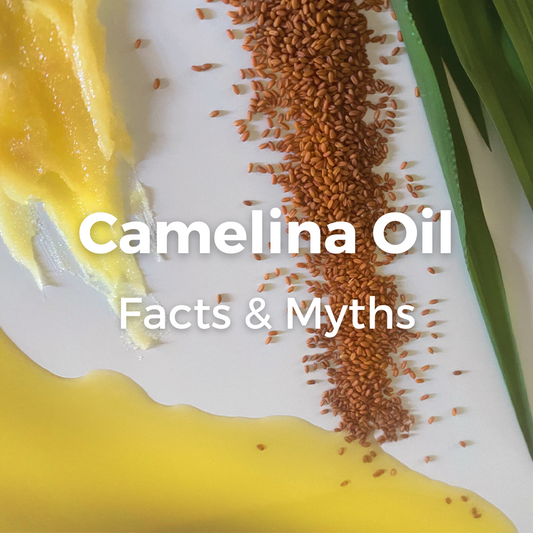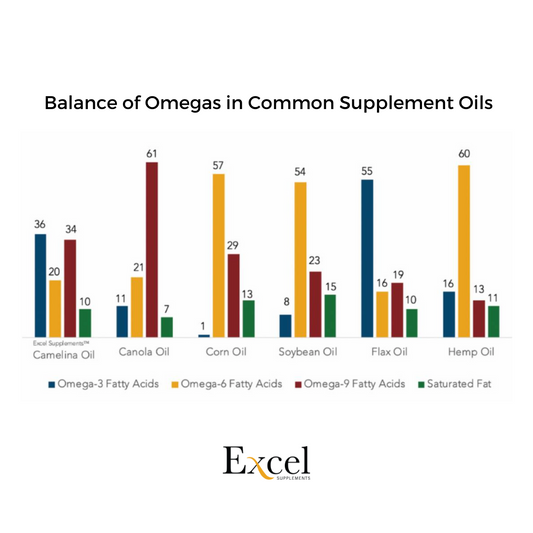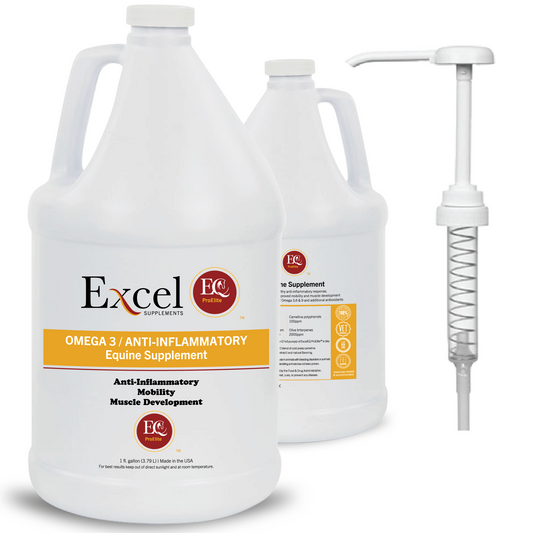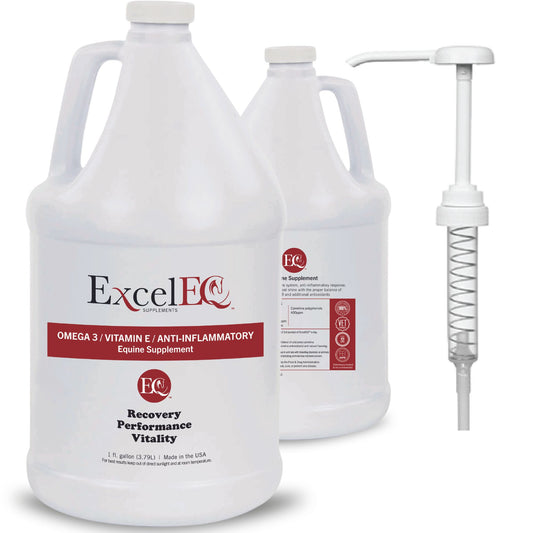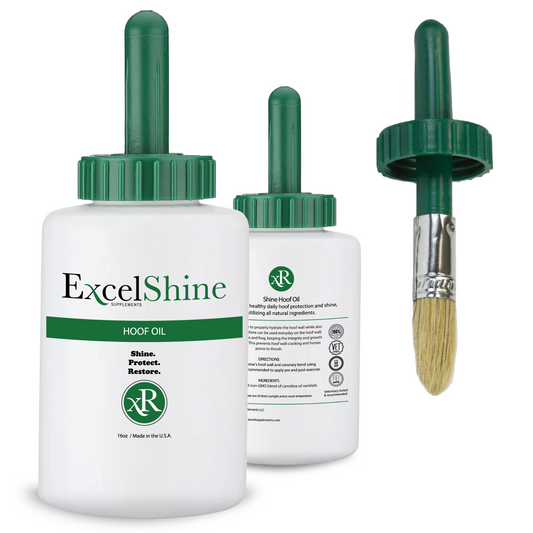NRF2 in Horses: Stress Regulation and Camelina Oil
Share
What is NRF2?
NRF2 is a vital protein found in the cells of all living organisms, including horses. More specifically referred to as the body’s internal defense switch, NRF2 helps regulate the natural stress response.NRF2 directly supports longevity and overall cellular health. Think of NRF2 as a thermostat: it turns on protective systems when stress levels rise and helps restore balance.
In horses, moderate stress can actually strengthen resilience, but continuous or excessive stress disrupts performance and well-being—an especially important factor in equine sports.
Common Causes of Stress in Horses
Horses may experience high levels of stress due to:
- Environmental changes (travel, climate shifts, new stall)
- Nutritional deficiencies
- Physical issues such as sleep disruption or injuries
As stress builds, NRF2 signals the production of protective molecules that work to restore normal function. Therefore, supporting this process through nutrition is key to keeping horses healthy and thriving.
Camelina Oil: A Natural NRF2 Activator
One effective way to support NRF2 is through Camelina oil. This supplement is rich in Omega-3 fatty acids and vitamin E, both of which are essential for stress regulation. In addition, it supports skin, coat, joint, and gut health, making it a versatile tool for equine care.
ExcelEQ™, formulated with Camelina oil, contains the nutrients often lacking in pasture diets. Therefore, it promotes more effective stress regulation and overall wellness.
Boosting NRF2 Through Diet
Beyond Supplementation, these various foods are also known to support NRF2 activation:
- Blueberries – high in antioxidants
- Grapes – rich in anthocyanins and hydration
- Avocados – contain vitamin C, vitamin E, and healthy fats
- Spinach – loaded with beta-carotene, vitamin C, and lutein
- Tomatoes – a source of lycopene, a powerful carotenoid
- Sweet Potatoes – full of beta-carotene
- Apples – provide quercetin, catechin, and chlorogenic acid
- Onions – contain vitamin C, folic acid, and quercetin
- Broccoli – packed with flavonoids and carotenoids like lutein and beta-carotene
While many of these antioxidants occur naturally in pasture, they often don't appear in adequate amounts to meet a horse’s needs—especially performance horses.
Addressing Nutritional Gaps With ExcelEQ ProElite™
Pasture diversity has declined over time, and nutritional deficiencies are common in horses raised solely on forage. As a result, many veterinarians recommend supplementation.
ExcelEQ ProElite™ delivers advanced nutritional support with high levels of Omega-3 and natural vitamin E. This enhanced formula helps fill pasture biodiversity gaps, promotes stronger cellular defense, and supports NRF2 activation—keeping horses balanced and performing at their best.
All this to say- supporting NRF2 activation is one of the most effective ways to help horses manage stress, recover faster, and maintain long-term wellness. With the power of Camelina oil, ExcelEQ and ExcelEQ ProElite provide the essential nutrients needed for optimal stress regulation in today’s equine athletes.
For updated information on equine care, trending topics and discount opportunities follow us on social!
Follow us on Instagram: @excelsupplements
Keep up with us on Facebook: Excel Supplements
